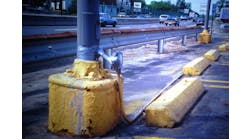Beware Of Your Utility’s PQ Departments
Recently, power quality is causing more concerns. Residential and commercial users expect power availability 24 hours a day, seven days a week. Industrial users not only want the same as the other types of electric power users, they also demand power to nearly emulate a perfect sine wave for their modern production lines to operate more efficiently. No matter how large or small, most electric utilities have instituted power quality departments to help their customers and offer value-added services with the approach of electric utility deregulation.
Power quality departments usually offer free services to their customers. The services can range from aiding in-plant staff to performing power quality audits. The size of the utility’s power quality staff usually governs the type and amount of service. If they don’t have a full-time power quality staff, several firms can help resolve some power quality issues.
Businesses may elect to take advantage of these free services. However, keep in mind the utility employs the power quality department staff. Using a utility’s power quality department staff is like a double-edged sword. If the staff performs a power quality audit, determining internal equipment is causing the problem, they may ask you to fix it. Some may even disconnect service until the problem is fixed or bill you for the repairs necessary to eradicate the problem from the utility’s distribution lines.
The utility company is responsible not only for you but all of its users. If one of its users is a major contributor to poor system power quality, the utility has every right to require that user to rid the source of the problem.
Obviously, utilities recognize the need for power quality departments, but some lack adequate training and necessary tools. Before allowing the utility or anyone else to perform a power quality audit on your electrical system, ask for the name and qualifications of the person responsible. Ask what type of equipment the investigator will use to diagnose the problem. Just because somebody has an electrical engineering degree and/or a power scope does not make that person qualified to solve power quality problems. A wrong diagnosis of a problem can cost a lot of money and downtime.
If you use a utility’s power quality department, then buyer beware. Question everything they tell you, challenging their notes and observations. And ask for written proof of the problem before enacting any of their recommendations. If you have any doubts, get a second opinion from a qualified source. Though this may cost money up front, it may pay off in the end.


